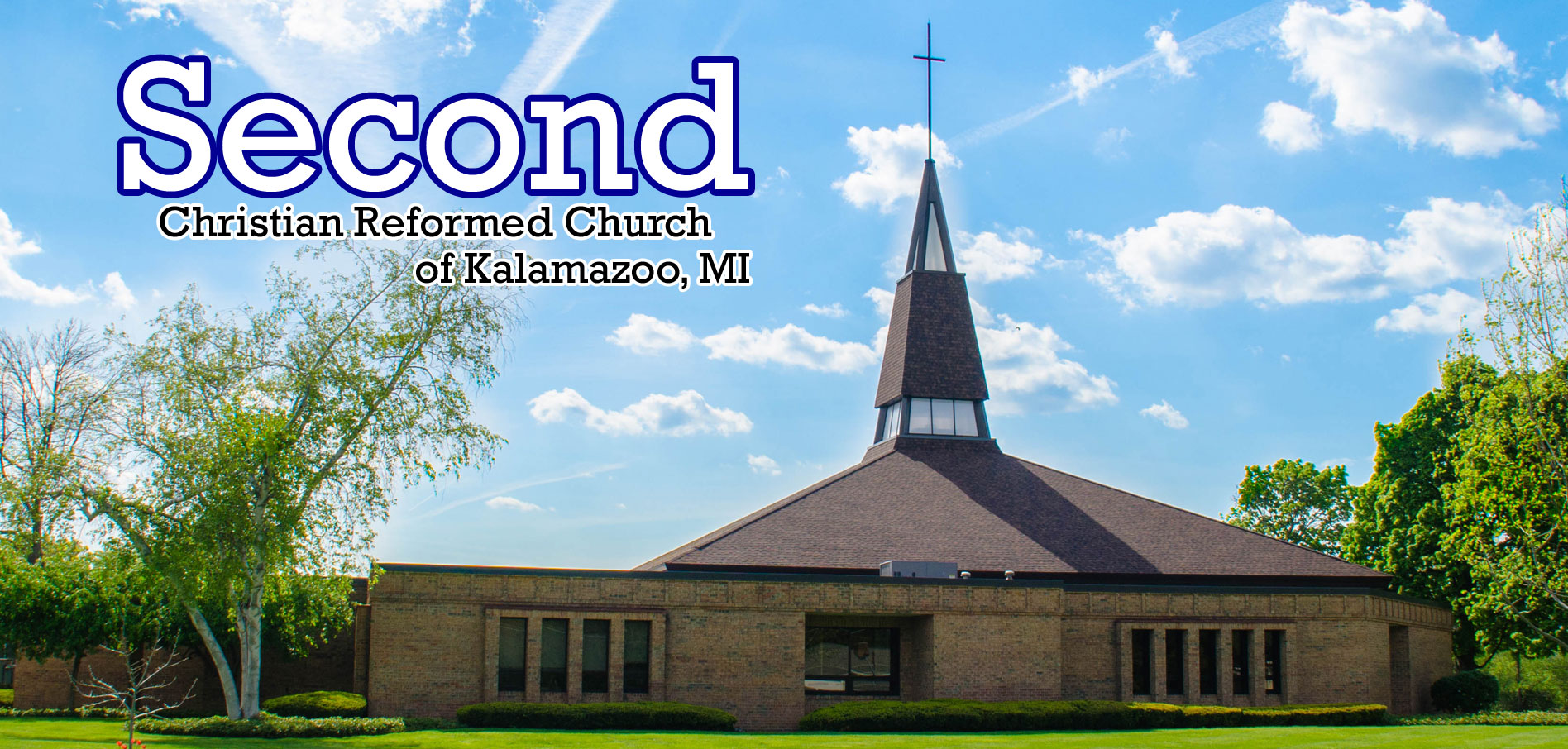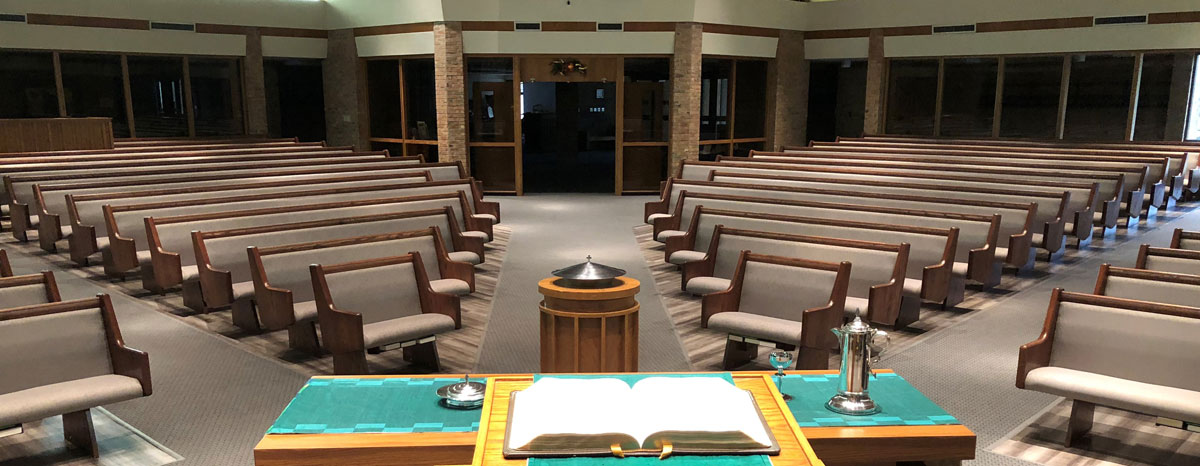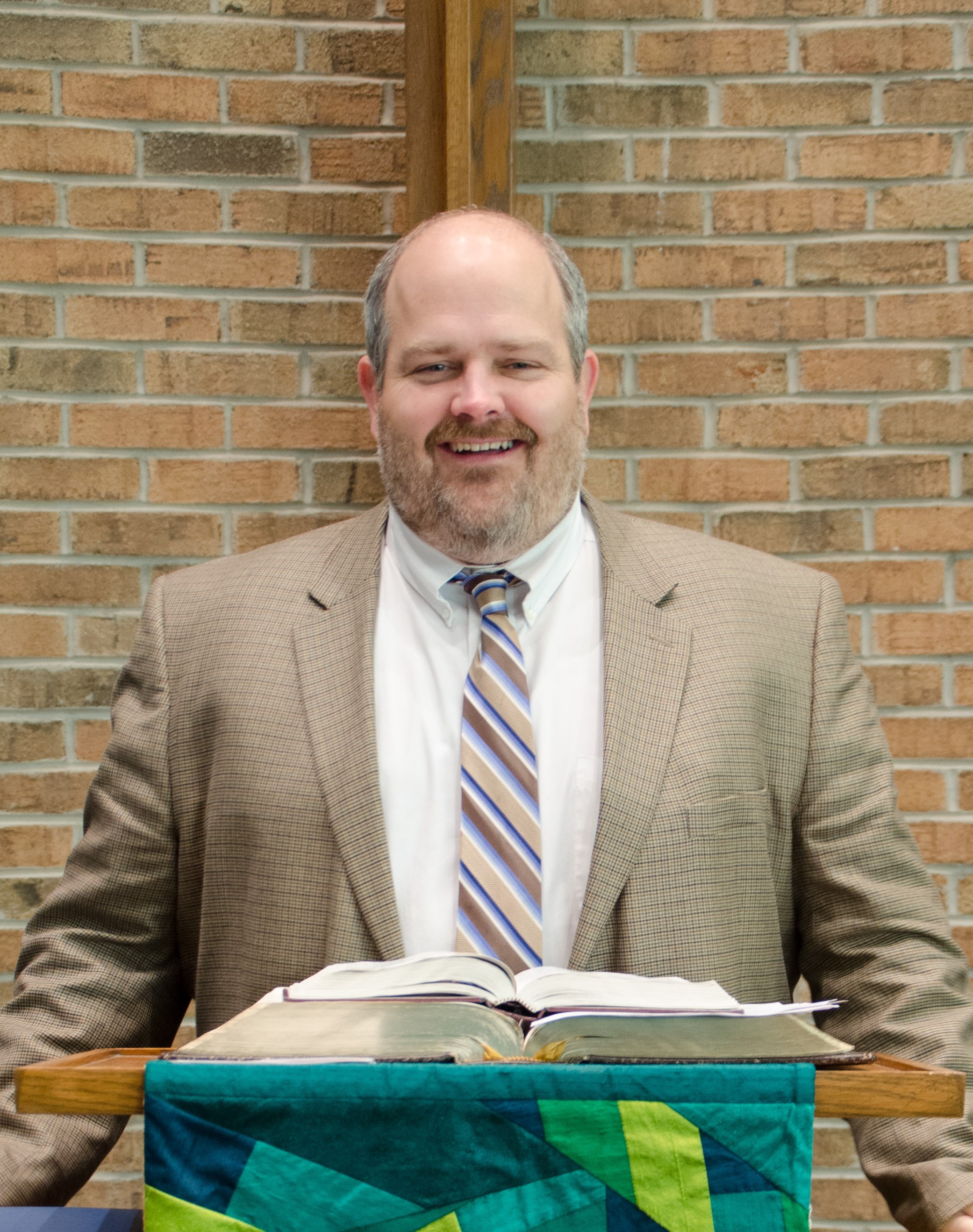



CRC means Christian Reformed Church. By "Christian" we mean that Jesus Christ is the only Lord and Savior, and the only means of salvation. By "Reformed" we mean that our church, our doctrine, and our Christian life is always to be reformed according to God's Word.
Our roots are in the Reformation of the 16th century. We are Protestant, Reformed, and Calvinistic, tracing our roots back to the Reformation through the teachings of John Calvin. One of the central beliefs of Calvinism has to do with Sovereignty of God. We believe that our salvation is from start to finish a work of God's grace. We believe that salvation comes only by faith in Jesus Christ as Savior and Lord. We believe that the Bible is the inspired Word of God for our doctrine and life. We believe that Christ is King and that it is our task to bring every part of our personal and social life into obedience to the Lord Jesus.
Our emblem - a cross in a triangle - expresses or basic belief. The triangle stands for the Trinity - Father, Son, and Holy Spirit. The cross shows our belief in Jesus Christ's death on the cross for our salvation.
We are a group of nearly 1000 churches located in the United States and Canada with missions and organized churches in several other countries. Although many of our families immigrated to North America from The Netherlands, we are consciously working to become more inclusive and now include not only believers with European roots, but also Asians, Africans, Hispanics, Orientals, and Native Americans.
The Bible is central in worship services and sermons are the focal point of worship. The Christian Reformed Church is a creedal church, meaning that we accept certain historical expressions of the Christian faith as a summary of true doctrine. These creeds include the Apostle's Creed, the Nicene Creed, and the Athanasian Creed. We also have three confessional statements from the time of the Reformation, The Heidelberg Catechism, The Belgic Confession, and The Canons of Dordt.
The Christian Reformed Church practices infant baptism and believes that adult believers and their children are included in God's covenant in which God promises to be our God and the God of our children through Jesus Christ. The covenant is a God imposed relationship in which He promises to provide blessings from Heaven so we may keep the covenant by faith and be a blessing to the nations.
We serve the Lord's Supper regularly and welcome fellow Christians from other traditions who are members in good-standing of their respective congregations.
The Christian Reformed Church has traditionally had a strong commitment to Christian Education both at the Church and Christian Day Schools. We therefore publish our own church education materials.
The Apostle Paul challenges Christians of all ages as follows: “I urge you, brothers, to watch out for those who cause divisions and put obstacles in your way that are contrary to the teaching you have learned” (Romans 16:17). Therefore we affirm our belief in the historic Reformed Christian faith given in the Scriptures, commit ourselves to live according to it, and reject all that is contrary to the Word of God. Furthermore, we affirm this testimony concerning the following points over which uncertainty has sometimes arisen.
I. CONCERNING THE WORD OF GOD
John 17:17; Matthew 4:4; 5:17-20; II Timothy 3:14-17; Hebrews 4:12; Psalm 119:105; Belgic Confession Articles 2,3,5,7,29
II Timothy 3:16,17; II Peter 1:20,21; Mark 13:31; Titus 1:1-3; Hebrews 6:16-20; Revelation 22:18,19; Belgic Confession Articles 3,7; Acts of Synod 1979, pages 127-128
II. CHURCH OF GOD
Acts 4:12; I Timothy 2:5; John 14:6; II Timothy 1:8-12; Hebrews 10:11-14; Romans 5:1,2,9-11 & 8:1-4; Ephesians 2:1-10; Belgic Confession Articles 20,21,22,23,26
Exodus 20:4; Deuteronomy 5:8-10; Leviticus 10:1-7; I Samuel 15:22,23; John 4:23,24; Heidelberg Catechism Q/A 96; Belgic Confession Article 32
I Timothy 2 & 3; Titus 1:1; I Corinthians 14; Belgic Confession Articles 30,31; Acts of Synod 1994, pages 505-508 & 513-516
Ephesians 2:11-22 & 4:1-16; Acts 15; I Corinthians 5-6:11 & 11:17-34 & 12:12-31; Belgic Confession Articles 27,28,29
III. THE LIFE OF GOD’S PEOPLE
Matthew 10:32,33 & 28:16-20; Mark 8:38; Luke 9:26; II Timothy 2:12; I Peter 2:1-12 & 3:15; Acts 1:8; Heidelberg Catechism Q/A 54
Ephesians 1:15-23 & 4:1-6; I Corinthians 6:12-20 & 10:31; Matthew 5 & 6:10; John 3:1-21; Belgic Confession Article 29
IV. CRITICAL MORAL/ETHICAL ISSUES AND CONTROVERSIES FACING THE CHURCH TODAY
I Corinthians 6:9-11; Leviticus 18:22; Romans 1:26,27; Genesis 19
Matthew 6:9; Luke 1:34,35; John 4:23,24; Matthew 3:16-17
Psalm 139:13; Jeremiah 1:5; Exodus 20:13; Acts of Synod 1972, pages 63-64; Acts of Synod 1976, page 64
Genesis 1-11; Hebrews 1:2,10; Hebrews 11:3; Mark 10:6; Luke 24:27; Belgic Confession Articles 2,3,4,9,10,12,13,14,15,16,23; Acts of Synod 1982, pages 107-108; Acts of Synod 1991, page 767
By these statements may believers more readily discern truth from error, be instructed in the Word, witness effectively to our world, defend against error, and become instruments in preserving and promoting the true unity of Christ’s church in accord with the Word of God.